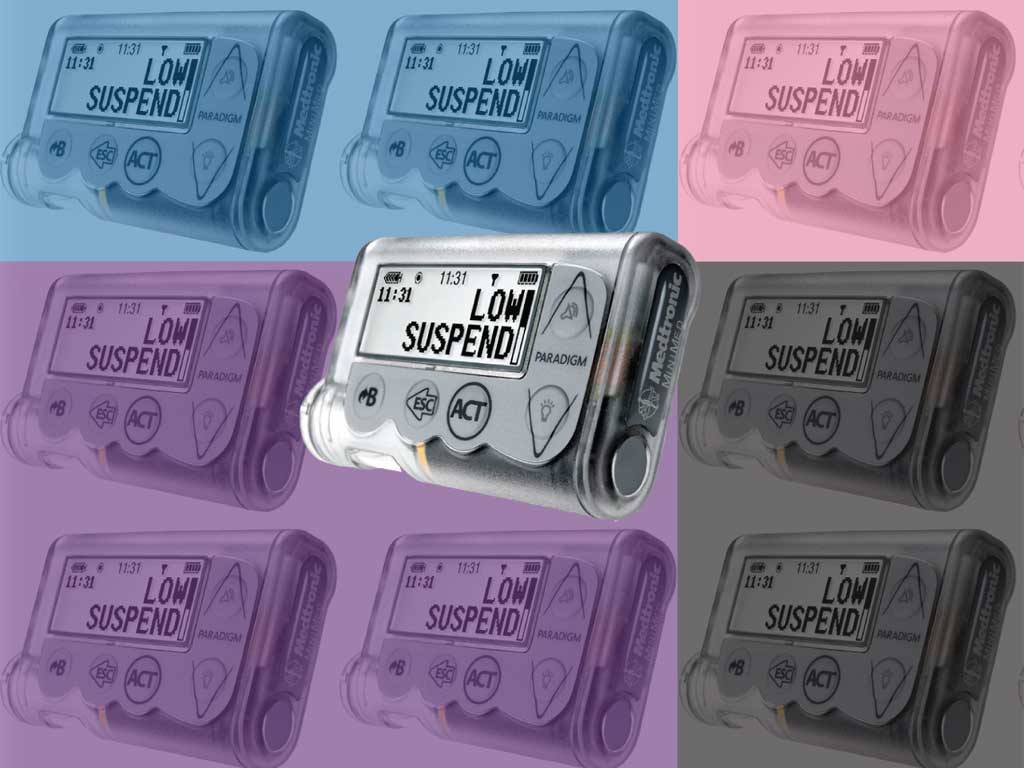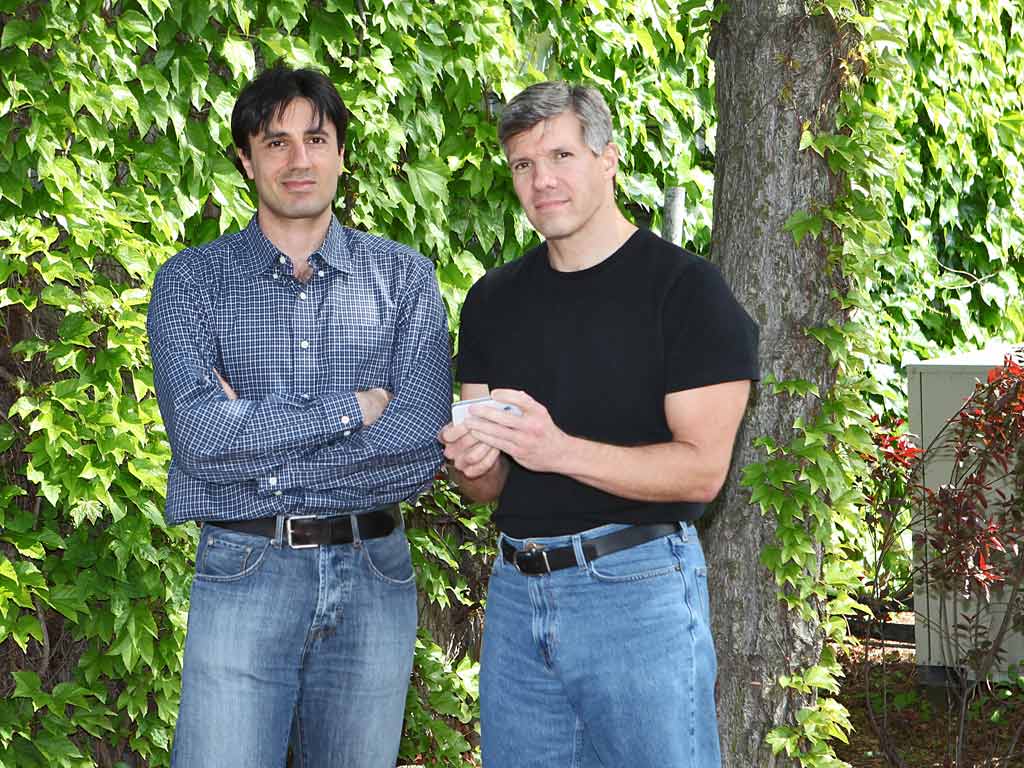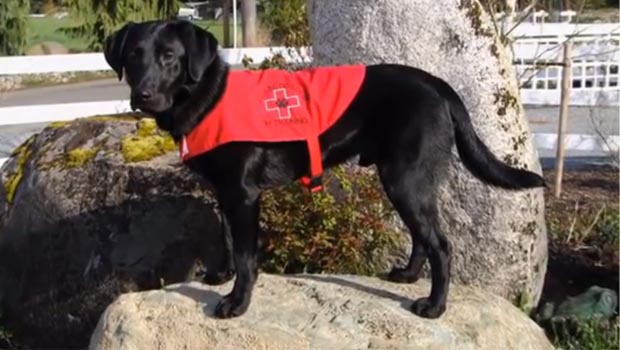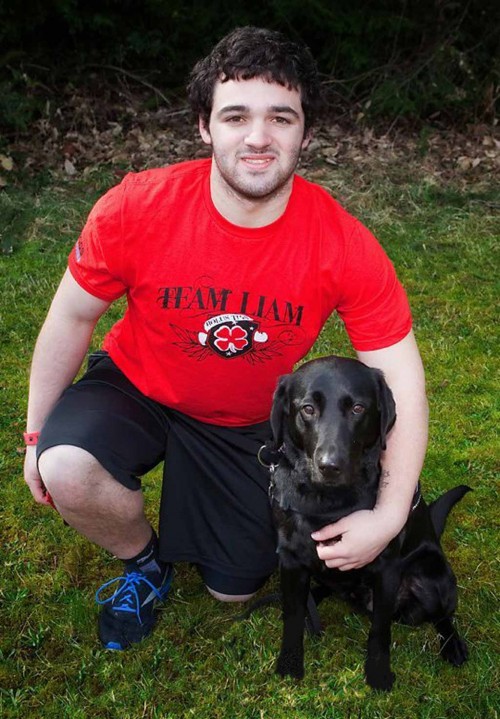Pumping Glucagon: The Unusual Case of Randy Brown

(Left) A young Randy Brown during his Vietnam years and today with his endocrinologist, Steve Edelmanon on his left.
After many years of experiencing mostly out-of-control diabetes, these days 65-year-old Randy Brown looks like the picture of health. Sitting at breakfast in a Cracker Barrel restaurant in Indianapolis, he’s trim and slim. Nothing would catch the attention of a casual observer of Brown’s dining except for his frequent checks of a Dexcom CGM, which shows a blood glucose level of 120, up from 80 before he began to eat.
“Lows would have killed me if I didn’t have a CGM with an alarm.”
Brown is actually quite at risk from severe hypoglycemia, so much so that his endocrinologist, Dr. Steve Edelman (founder of Taking Control of Your Diabetes), has temporarily replaced the insulin in Brown’s pump with glucagon. A Type 2, Brown was first diagnosed in 1969 after coming home from a tour of duty in Vietnam, during which he was exposed to the lethal herbicide Agent Orange. Brown left Vietnam in 1968, but Vietnam didn’t leave him. For most of the last 43 years, he’s battled Agent Orange’s effects on his body, including multiple tumors and Type 2 diabetes. For more than half of those 43 years, Brown wasn’t a model patient. His blood glucose readings were routinely in the 300s, and his A1c was 12. His Indianapolis doctor referred him to Edelman in 2006. “Dr. Steve,” as Brown calls Edelman, put him on an insulin pump, and that — combined with gastric bypass surgery that led to a weight drop from 308 to 175 — helped Brown to lower his blood glucose readings to the 120s on average. His diabetes management became so good that he was able to stop pumping insulin and go off all medications in August 2011. His A1c was then 6.3, and his case looked like a rare instance where blending surgery with lifestyle changes trumped diabetes. But, cautious by nature, Brown continued to test his glucose, using finger sticks an average of eight times a day, and he did not disconnect his CGM.
“My advice to anyone with diabetes is to find an expert and listen to them.”
His caution proved prudent, because the respite from diabetes was brief. Within three months, he began to experience lows so severe that they “would have killed me if I didn’t have a CGM with an alarm,” Brown said. Ironically, after years of needing synthetic insulin, Brown’s pancreas had started to produce so much insulin that it threatened his life. He may be suffering from a rare but well-documented aftereffect of gastric bypass surgery, in which carbohydrates consumed pass too quickly from the stomach to the small intestine and the beta cells in the pancreas over-produce insulin. If changes in diet don’t help, either the gastric bypass is reversed or part of the pancreas must be removed.
In Brown’s case, a well-controlled diet has not yet adequately slowed down the rampaging after-meal beta cells. To fight back, Edelman replaced the insulin in Brown’s pump with glucagon, and prescribed Diazoxide, a drug used to treat acute hypertension that also inhibits the secretion of insulin in the pancreas. As of early September 2012, the combined treatments seemed to be working well, but no one knows what the long-term effects of pumping glucagon may be. And so, more surgery for Brown is still very much a possibility. Despite all of his trials, Brown remains upbeat. “I’ve been lucky in who I know,” he said, “particularly Dr. Steve. My advice to anyone with diabetes is to find an expert and listen to them.” This autumn Brown is attending his 27th TCOYD conference, in Missoula, MT, and even though he has heard Edelman speak dozens of times, he doesn’t believe there is any such thing as over-exposure to the doctor’s advice. “I’m always looking for new information,” Brown said. “You never know when you might hear that one thing that saves your life.”







